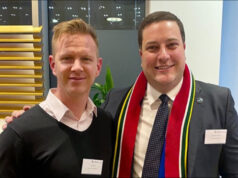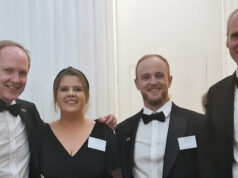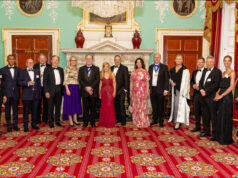Comment: Vassi Naidoo, partner, head of International Markets Group Deloitte.
I am of the view that South Africa will still continue to be a gateway into Africa, notwithstanding the events of Marikana. I would say that even though it’s been a little bit delayed, the leadership have realised that Marikana has happened and therefore they have to deal with it. They have taken some action in order to call this enquiry [into the tragedy], and we need to make sure that Marikana is not a lost opportunity.
I think that Marikana will obviously cause some change to happen, because it would be fruitless if everything else stayed the same. And I believe if leadership, broadly defined, takes the output of the enquiry and deals with it in a constructive and engaged way, we will get a better South Africa.
South Africa is still a gateway into Africa, because it already has democracy, it has the constitution, it has institutions that work, it has fantastic accounting and auditing professionals. It has very stable financial institutions, and it has the fundamentals for people to set up shop and ensure that they could do business in Africa.
There is concern with the downgrading of South Africa and with the so-called labour and political instability that exists. I’m of the view that the South Africans will work that out and it will be stabilised, but we’re going to go through some choppy patches.
There’s no question in my mind that investments into South Africa are going to be impacted. But it’s how they emerge from this crisis and the actions that are taken that are going to make sure that South Africa will continue to be a destination into Africa and I am of the view that leadership will do exactly that.
In 1994 post-apartheid South Africa tried to, and has done, a terrific job in the last 18 years to build the South Africa brand. Our miracle democracy, the growth rates that we achieved, the financial stability, the constitution, the rule of law, all that good stuff. And to some extent I think that brand has been damaged by the recent incidents and South Africa certainly needs to take some action to rebuild that brand and re-instil that confidence.
Now while South Africa was doing all that for the last 18 years Sub-Saharan Africa and indeed Western and North Africa, Nigeria, have not been sitting on their laurels. If you take what’s happened in Sub-Saharan Africa and East Africa with the oil finds on the east coast and if you take the significant investment that the Indians and the Chinese are putting into Central Africa and then more recently if you look at what’s happening in Nigeria, they are all embracing democracy. They’re all coming up with a vision for their country and they are now starting to become competition for South Africa.
In terms of Africa, the West can choose to continue to do analysis and to continue to say there’s all these things that are wrong and as we do the analysis from the West, the Chinese and the Indians are just going to go and soak up the opportunities. And I believe that South Africa has a key role to play, not only for South African companies, but for global companies, western companies that have operations in South Africa to leverage it into the broader continent.
The McKinsey research that has come out on Africa recently they talk about the 122m new consumers and 78m jobs that are going to be created in this continent. That’s twice the population of the UK that are going to be future customers and consumers and I would say the other opportunity for Sub-Saharan Africa has to be in the area of consumer business.
All these people have to be fed, they have to be clothed, they have to be housed and companies should be wise to look at embracing a model that has been traditionally different to the way they’ve decided to go into Africa in the past.
The old notion of going there just to get the coffee beans, to get the oil, to get the reserves and the raw materials and come and process it elsewhere is not going to be sustainable. The only way that they’re going to get this right is by working with the governments in Africa to create manufacturing and processing capability and by working with government by embracing the societal contract to make a difference.
While educating its population is a core deliverable for every government, just like the protection of its citizens is the responsibility of government, I believe companies can fundamentally change the way people are trained and skilled.
People that want to go and make money in Africa are only going to be the people that think about Africa differently today. If people are thinking of going into Africa and they are going to be guided and shaped, their thinking are going to be shaped by the history of what’s happened in Africa. If people are going to take what happened in Marikana as this is the new South Africa, they’re going to lose.
You’ve got to go into these countries, you’ve got to understand what’s going on, you’ve got to work with the governments, you’ve got to work with civil society, you’ve got to work with the professional bodies and think about doing it differently.
Let me be clear, I am not talking about South Africa as a corporate social responsibility (CSR), if anyone goes into South Africa because of CSR, don’t go. South Africa is a place where you can go to make some money, but you can’t go with the old way of thinking.
www.gatewaytoafrica.com









